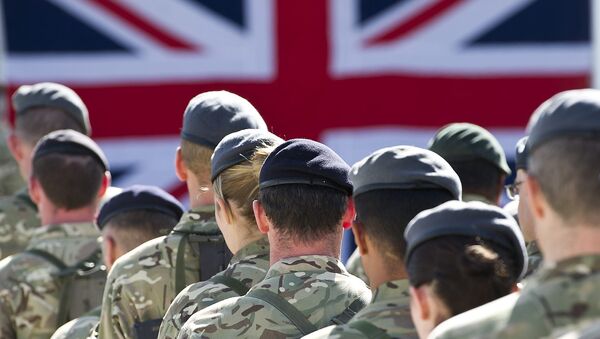The UK Government announced December 13 it intends to end a law, that enabled commanding officers in the UK Armed Forces to investigate themselves or their own soldiers for sexual assault-related crimes.
The reform comes after a protracted struggle by human rights organizations, which claimed the military justice-system affords far less legal protections to servicepeople than civil courts.
Emma Norton of Liberty, the organization which campaigned for the law change, said in a statement the news represented a "huge achievement."
"The fact it took the threat of legal action to persuade ministers to give soldiers this most basic protection reveals a disturbing disregard for the rights of the men and women who serve our country. Once again we've had to use the Human Rights Act to drag the Ministry of Defense kicking and screaming into the 21st century."
BREAKING: Government to scrap archaic loophole that lets Armed Forces Commanding Officers investigate sexual assaults themselves https://t.co/hYcpkLFG9a pic.twitter.com/yjNQqFqSMU
— Liberty (@libertyhq) December 13, 2017
Nonetheless, Liberty believes the amendment does not go far enough, in that Commanding Officers are still under no obligation to refer allegations to civilian police. As a result, soldiers' complaints can still be investigated by Royal Military Police soldiers, who lack the training and independence necessary to deal with such serious cases.
Previous Cases
Liberty cited previous examples of sexual assaults that ended tragically for the victims, including Corporal Annie-Marie Ellement — she accused two male colleagues of rape in 2009, before taking her life two years later. A military tribunal subsequently found the accused pair innocent in 2016.
Nonetheless, the tribunal condemned their "extremely unpleasant" conduct, noting Ellement had been found nearly naked, and crying outside her accommodation after the tryst, and they had called her a "slag" — among other derogatory slurs.
"After engaging in sex, you effectively discarded her while you decided to go off to town without a thought for how she might be feeling or how she might get back to her accommodation safely," it alleged.
In another case, in 1995 Private Cheryl James died at Deepcut military barracks in Surrey, England. James was one of four trainees at the barracks that died in suspicious circumstances between 1995 — 2002.
Each was found dead with gunshot wounds they could or would likely not have inflicted themselves. Nonetheless, in each case the Coroner's verdict — reached following investigation by the Royal Military Police — was one of suicide. In 2015, the army's legal team admitted it had only handed over 75 percent of the material it held on the death of James.
READ MORE: In the Army Now: Sexually Transmitted Disease Rates Rising in US Military
Her death was considered particularly suspicious, as there was no evidence to connect the weapon found alongside her body with her death — no fingerprints were collected from the rifle, ammunition from it was inexplicably destroyed, and the clothing Cheryl was wearing was never examined forensically.
At an inquest into her death in 2016, the Ministry of Defense admitted Deepcut barracks was plagued by a highly sexualized environment, with male supervisors seeing young female trainees as a sexual challenge, and nowhere for a young soldier seeking advice and support to go.
At the time, Liberty said the inquest evidence revealed a "brutal and morally chaotic environment, particularly for young women, which amounted to a deeply harmful failure in the duty of care they were owed."


